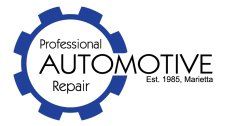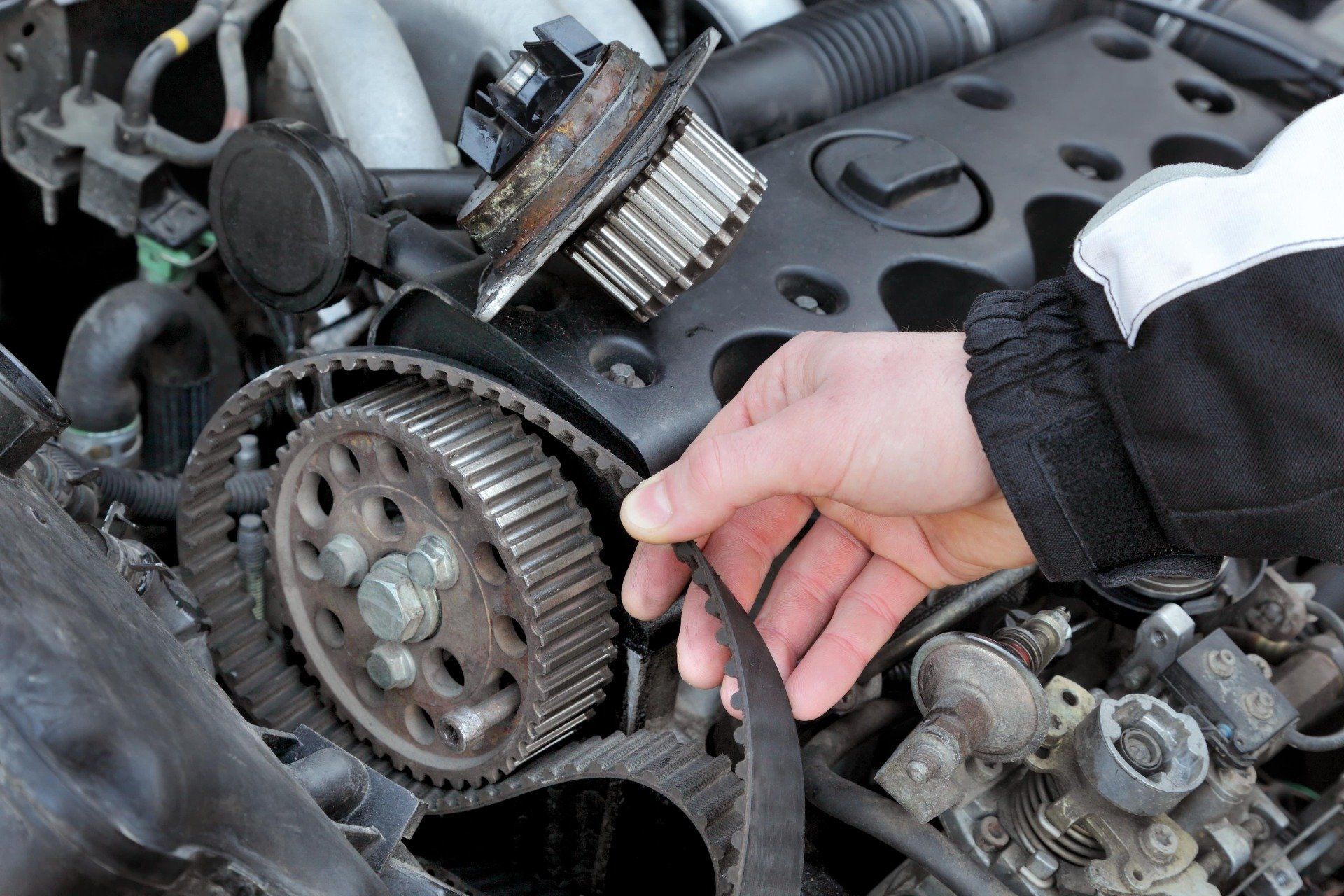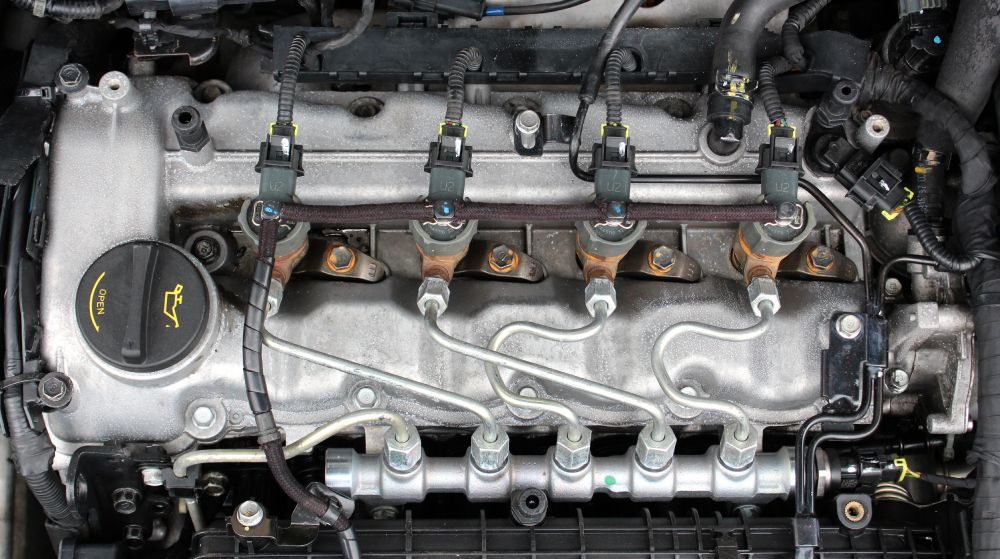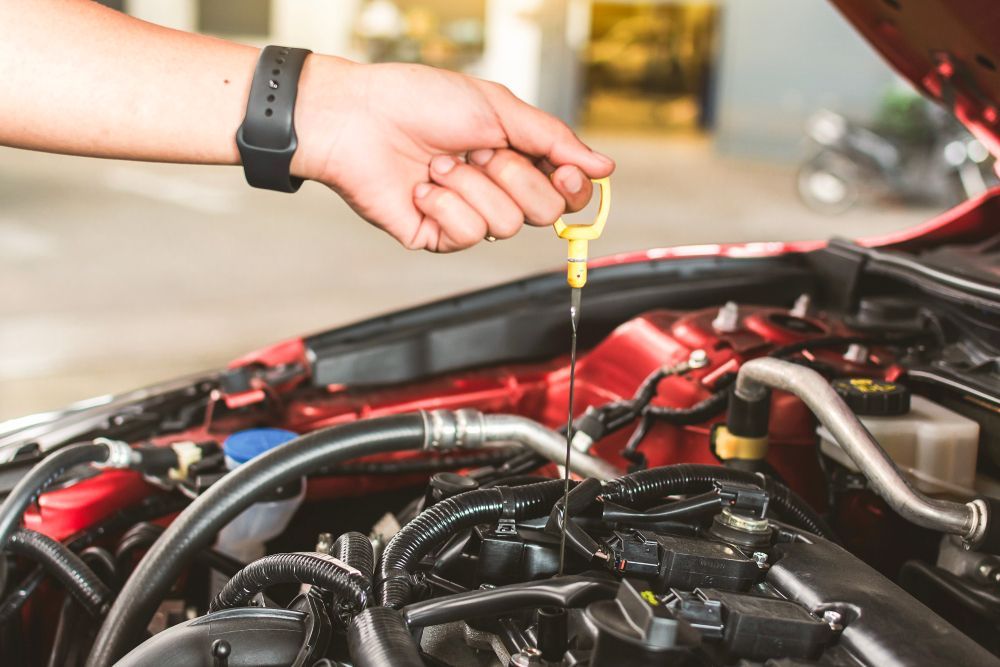Symptoms of Worn Brake Pads Explained
Nobody wants to think about brake pads. They exist solely to wear out and cost you money. But ignoring the symptoms of worn brake pads is like ignoring that weird dishwasher noise—eventually, something expensive breaks.
Brake pads are designed to be sacrificial. They wear down so your rotors don't. Here's what most auto shops won't tell you: there are clear warning signs that give you time to plan for the expense instead of getting blindsided.
At Professional Auto Repair in Marietta, we've dealt with brake problems since 1985. We've seen what happens when people ignore the signs, and how much money you can save by catching problems early.
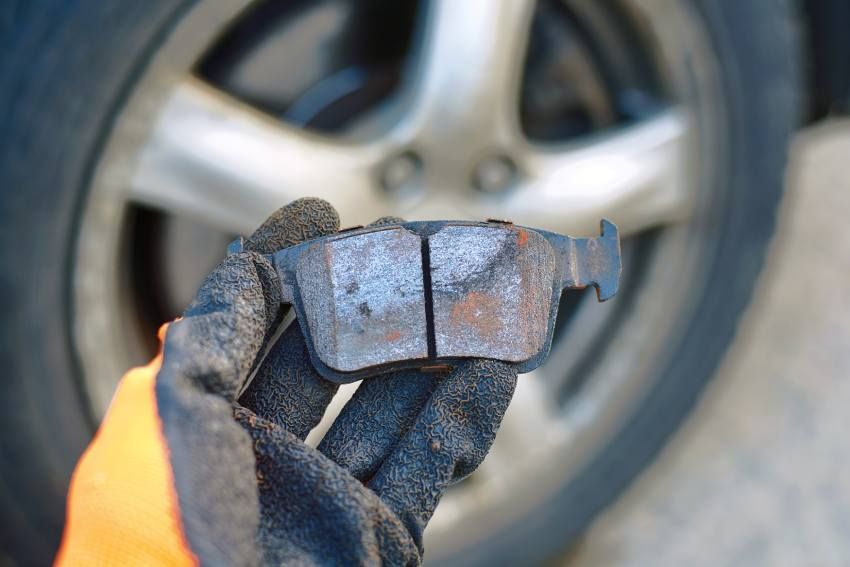
When to get your brakes checked
When something feels or sounds different. When to get your brakes checked isn't just about mileage, it's about paying attention to your car.
That squealing when you brake isn't your car being dramatic. It's a tiny piece of metal deliberately designed to scrape against your rotor when brake pads get thin. It's annoying on purpose. Engineers wanted to make sure you couldn't ignore it.
That squealing is your early warning system. Ignore it, and you'll graduate to grinding (metal on metal). That's when a $200 brake pad replacement becomes a $600 brake pad and rotor replacement.
Vibrations in your brake pedal or steering wheel usually mean warped rotors. That happens when brake pads get too thin. The heat from metal-on-metal contact warps the rotor surface.
Professional Auto Repair recommends brake inspections every 12,000 miles. But if you're hearing noises or feeling vibrations, don't wait for your next scheduled service.
How to Inspect Brake Pads
You can check your own brake pads without being a mechanic. Learning how to inspect brake pads requires getting a little dirty and looking through your wheel spokes.
Look for the brake pad between the caliper and rotor. It should look like thick, dark material pressed against the shiny metal rotor. If you see less than a quarter-inch of that material, you're getting close to replacement time.
But you can't see uneven wear patterns from the outside. Brake pads should wear evenly across their surface. When they don't, something else is wrong—maybe your caliper is sticking.
That's why Professional Auto Repair offers free brake inspections. We'll pull your wheels off and actually measure pad thickness, check for uneven wear, and look for other problems causing premature wear.
Check around your wheels for brake fluid leaks. Dark spots or wet areas near brake components mean your hydraulic system is leaking—a much bigger problem than worn pads.
When to Replace Brake Pads
The official answer: when brake pads measure less than a quarter-inch thick. The realistic answer: when to replace brake pads depends on how much you like gambling with your safety.
Most people wait until they hear squealing. Some wait until they hear grinding. A few wait until their brakes actually fail. Don't be in that last group.
Professional Auto Repair replaces brake pads in axle sets—both sides at once. Some shops try to save you money by replacing just one side, but that creates uneven braking forces. Your car will pull to one side when you brake, which is both annoying and dangerous.
We check your rotors when we replace pads. Sometimes rotors can be resurfaced if they're not too worn or warped. Sometimes they need replacement. We'll tell you which situation you're in and why.
Brake Safety Tips
Here's brake safety advice that actually matters: stop riding your brakes on hills. We know Atlanta has steep roads, and traffic makes you want to control speed with your brake pedal. But constant brake pressure generates heat, and heat kills brake pads.
Use your transmission to help slow down on hills. Downshift if you have a manual transmission, or use lower gear settings with an automatic.
Replace your brake fluid every two years. Brake fluid absorbs moisture from the air, and moisture lowers the fluid's boiling point. When brake fluid boils, you get vapor bubbles in your brake lines, and vapor bubbles compress.
Professional Auto Repair provides brake repair services in Marietta that go beyond just replacing pads. We check your entire brake system because brake problems are rarely just about brake pads.
Our auto repair in Marietta, GA includes comprehensive brake system diagnosis using equipment that can measure things you can't see or feel.
The symptoms of worn brake pads are your car's way of trying to save you money and keep you safe. Listen to them.
Contact Professional Auto Repair and let us check your brakes before they become a bigger problem.


